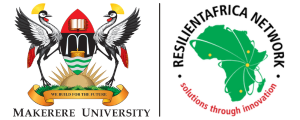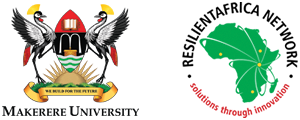The Southern Africa RILab (SARILab), one of ResilientAfrica Network’s (RAN) Resilience Innovation Labs (RILab) is hosted by the University of Pretoria, School of Health Systems and Public Health with network-plus partners at University of Zimbabwe, Lilongwe University of Agriculture and Natural Resources and University of Limpopo. The SARILAb has identified communities of focus spread in 3 countries, accounting for half of the regions’ population. Southern Africa RILab is interested in understanding the root causes of adverse effects of HIV and AIDS in the rural communities and developing innovations with these communities to reduce the impact of HIV and AIDS and strengthen resilience.
SA RILab Vision
To have African communities that are resilient to the shocks and stresses affecting their livelihoods, making use of innovative solutions to their context specific resilience challenges. The SA RILab envisions resourceful people in target communities that effectively harness individual and community agency, local adaptive capabilities, and innovative solutions to diversify their livelihoods in a manner that guarantees food security and sustainable income generation.
Thematic Areas of Focus
RAN’s Southern Africa RILab concentrates on the impact of chronic diseases, particularly HIV and AIDS, issues of access to livelihood assets and understanding the local adaptive strategies. It is also important to note that communities in Southern Africa face acute and chronic shocks and stresses with limited resources to respond. These range from floods, droughts, diseases to the debilitating social impact of chronic poverty.
In Southern Africa, the HIV prevalence is above 20% and up to 13% of children below 18yrs have lost a mother or parent to HIV and AIDS. Most communities are dependent on agriculture & live in absolute poverty. Death of working adult males results in increased female-headed households, mostly older adults. Change has caused adoption of less sustainable land use practices & use of ‘protected resources’ for revenue regeneration. HIV thus intensifies vulnerabilities of affected communities. Malawi is also faced with problems relating to climate variability.
As an agro-based economy agricultural shocks are an important source of vulnerability for the majority of the households in Malawi. In particular, the heavy dependency on rain-fed subsistence agriculture makes the majority of households vulnerable to erratic rainfall. Unpredictable and erratic rainfall exposes farmers to the risk of drought or flooding each year.
Vulnerability in agriculture in Malawi is also exacerbated by land constraints. Illnesses and deaths of economically active household members often erode household incomes not only due to a loss in labour, but also because household members may be pre-occupied with caring for the sick.
The concept of resilience has originally been limited within development disciplines to adaptive capacities of people or communities or systems to ‘stress’ or ‘shocks’ (more commonly shocks) such that people recover and thrive as demonstrated by reduced vulnerabilities and improved well-being. These are usually focused on ‘acute events’ or shocks such as floods and droughts and how people adapt such that they are able to sustain their livelihood (including food security).
Geographic Coverage
- Beitbridge in Matabeleland Province Zimbabwe.
- Chikhwawa District in Southern Malawi.
- Ga-Dikgale communities in Capricorn District Central Limpopo Province South Africa.
- Pyramid community North of Pretoria, South Africa.
Dimensions of Resilience
Dimensions of Resilience to income insecurity and food insecurity among households in HIV/AIDS high burden communities: The RILab is working with 10 dimensions related to the effects of rapid urbanization and food insecurity. These include;
- Zimbabwe: Environment, Governance, Health, Human capital, Infrastructure, Psycho-social, Social capital and Wealth.
- Malawi: Infrastructure, social capital, psychosocial, Environment, Human Capital, wealth, Institutional factors/Governance and Health/Living with HIV/AIDS.


